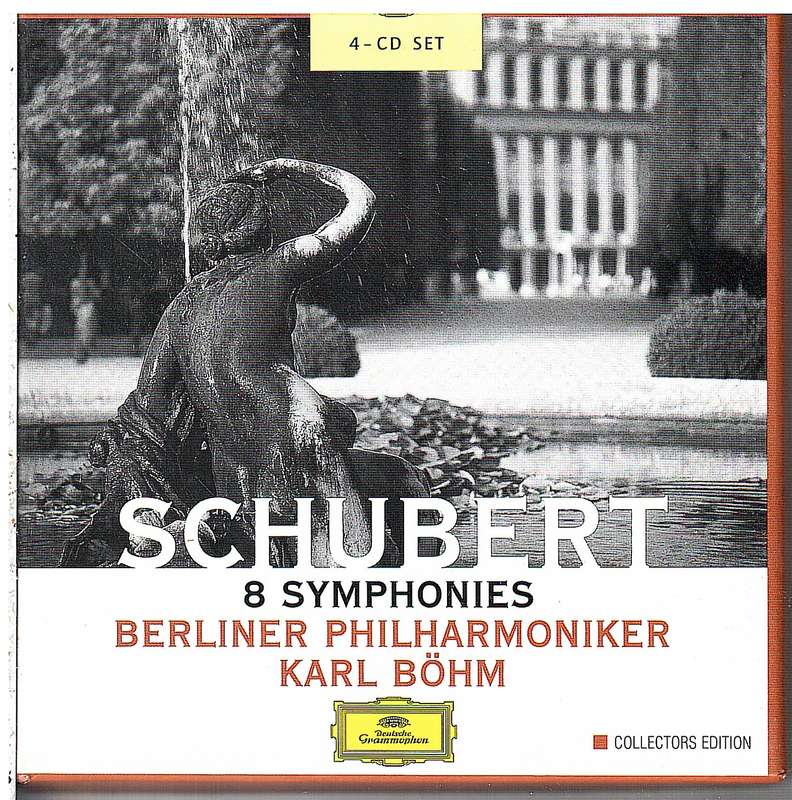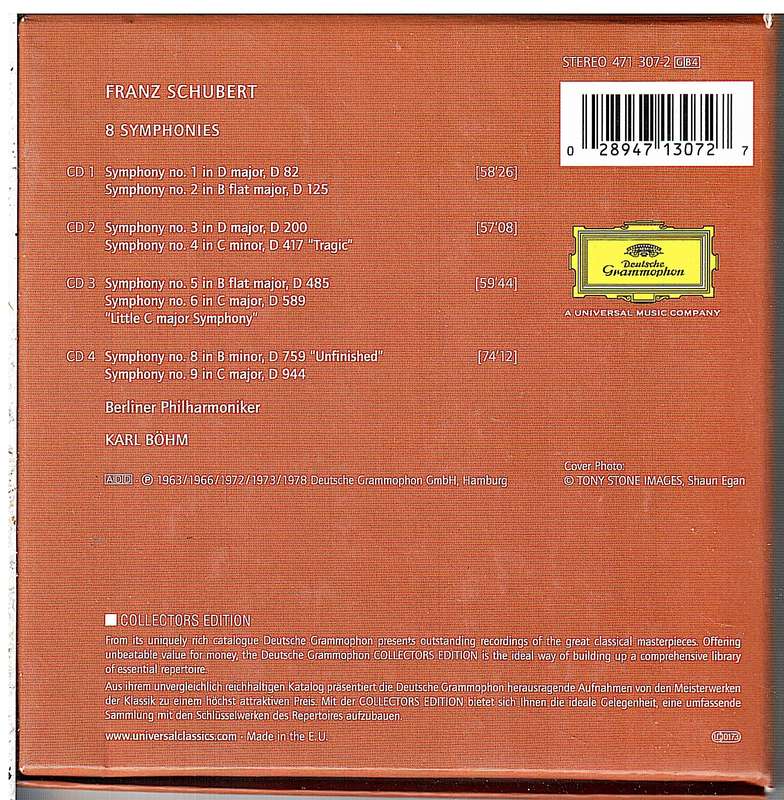



Schubert: 8 Symphonies 4 CD Set - Berliner Philharmoniker/Karl Bohm (Cond)
Check my rate
| Main centres: | 1-3 business days |
| Regional areas: | 3-4 business days |
| Remote areas: | 3-5 business days |




| Main centres: | 1-3 business days |
| Regional areas: | 3-4 business days |
| Remote areas: | 3-5 business days |
Böhm's Schubert cycle has outlasted many of its rivals on record--and deservedly so. Böhm's approach to this repertoire is admirably direct, unpretentious, and vigorous (despite tempos that might strike some listeners as slower than ideal).
In the early symphonies (1-4), Böhm does not aim as much to charm the listener as to convey a salutary toughness that reveals the youthful Schubert's debt to Beethoven. Those who prize Beecham's inimitable brio and elegance, or Abbado's quicksilver lightness and intimacy, might find Böhm a bit too serious by comparison; on the other hand, listeners who have found early Schubert insubstantial will welcome Böhm's classicist priorities--including his decision to take minuets at a stately tempo rather than converting them into one-in-a-bar scherzi.
Böhm brings added warmth and spontaneity to the two transitional works (5 & 6), without any slackening of discipline. The B-flat symphony glows with a radiance similar to Bruno Walter's cherishable recording. Beecham brings an infectious sparkle to this symphony, and to the C-major, that no other conductor has ever quire matched (at least in my experience), but Böhm is not far behind. In fact, I find Böhm's choice of tempi in no. 6 far more congenial than Beecham's, particularly in the finale (which Beecham, for all his charms, tends to drag). Indeed, Böhm's is the only recorded version of the stylistically inconsistent "Little C-Major" that I find fully convincing.
The two mature masterpieces (8 & 9) flourish under Böhm's direction. The "Unfinished" combines dramatic tension and tenderness in just the right proportions. Neither the famous secondary theme in the first movement, nor the yearning theme which dominates the second is allowed to languish; Böhm lets the expression emerge effortlessly and naturally from an unbroken and unselfconsciously lyrical line. Perhaps others have conveyed a greater sense of mystery or moment in the first movement's opening gambit, but once again Böhm convinces by keeping everything in proportion. Classical virtues predominate in his outstanding realization of the "Great" C-major as well. In all four movements Böhm conveys the sense of a great occasion, even majesty, without undermining the crucial sense of forward movement. Few conductors on record have gotten this balance right. Only Furtwängler surpasses Böhm/BPO in this work (I haven't heard Böhm's later version of this symphony with the Dresden Stadtskapelle which some critics have found superior).
Throughout the cycle, the BPO plays with outstanding virtuosity, character and involvement, as we would have expected. The recording is beautifully balanced--clear, solid and natural (like the interpretations). Given the bargain price advantage, this set could be a first choice for novice collectors. It certainly should be in the collection of anyone who values the best of "old-world" interpretive traditions. In this sense, Böhm's is and remains the classic Schubert cycle. Avid Schubertians will also want to own the (also fine) Marriner/St. Martin's set on Phillips, if only to hear Brian Newbould's stunning "realizations" of Schubert's fragmentary sketches for several symphonic works (including the forward-looking "Symphony no. 10" which clearly anticipates both Bruckner and Mahler). - Amazon user review
4 CDs in individual cardboard sleeves in cardboard box
028947130727
Deutsche Grammophon, 2001
Germany
CDs: Excellent condition; Box: VG
C02